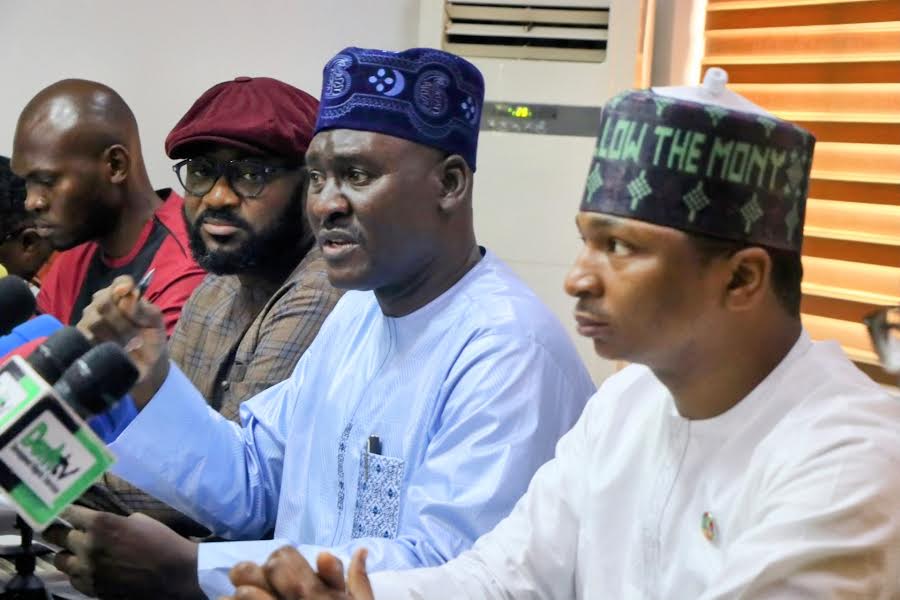
PHOTO: LUCY LADIDI ATEKO
Coalition of about 40 Civil Society Organisations, including YIAGA Africa, Civil Society Legislative Advocacy Centre (CISLAC), Centre Democracy and Development (CDD), yesterday, called on the Supreme Court to dismiss the suit filed by 16 state governors challenging the constitutionality of the laws establishing the Economic and Financial Crimes Commission (EFCC) and two others.
The organisations observed that the case, currently before the Supreme Court regarding the legality of the EFCC, was not just a legal battle but a battle for the soul of Nigeria’s anti-corruption efforts.
A seven-member panel of justices, led by Justice Uwani Abba-Aji, had fixed October 22 for the hearing of the suit by the governors, seeking to declare the EFCC and Nigerian Financial Intelligence Unit (NFIU) illegal bodies.
The suit, marked SC/CV/178/2023, was originally filed by the Kogi State Government through its Attorney General, Muiz Abdullahi, SAN. However, 15 other states joined as co-plaintiffs.
The states are Ondo, Edo, Oyo, Ogun, Nassarawa, Kebbi, Katsina, Sokoto, Jigawa, Enugu, Benue, Anambra, Plateau, Cross River, and Niger.
The states contended that the formation of the agencies breached constitutional provisions.
They argued that the constitution required the endorsement of a majority of the states’ Houses of Assembly for the EFCC Act, but this was not done before the agency was created.
Addressing a press conference in Abuja, yesterday, the coalition, comprising 40 CSOs, focused on anti-corruption and good governance, stressing that the actions of the governors threaten the fight against corruption and undermine local government autonomy.
Other members of the coalition included the Resource Centre for Human Rights and Civic Education (CHRICED), Rule of Law and Accountability Advocacy Centre (RULAAC), Socio-Economic Research and Development Centre, Socio-Economic Rights and Accountability Project (SERAP), Tax Justice and Governance Platform, Transition Monitoring Group (TMG), Women Advocate Research and Documentation Centre (WARDC) among others.
Executive Director of CISLAC, Auwal Musa Rafsanjani, described the governors’ action as the most disingenuous and boldest effort to frustrate and cripple the effectiveness of Nigeria’s anti-corruption war; which, he said, could further worsen an already worst situation.
According to him, the implications of this action are not farfetched, saying aside far reaching international reputational damage it poses for the country, the action could lead to the blacklisting and eventual suspension of Nigeria by the Financial Action Task Force (FATE).
The organisation had listed Nigeria since February 24, 2023 as a non-cooperative country in the global fight against money laundering.
“These legal battles represent a blatant disregard for the rule of law. They are an attempt to erode the progress Nigeria has made in establishing institutions that hold public officials accountable,” Rafsanjani stated.
The organisations argued that the Nigerian Constitution and several other laws form the bedrock of the country’s anti-corruption efforts.
They noted that Section 15(5) of the Constitution of the Federal Republic of Nigeria, 1999 (as amended), clearly mandates the state to “abolish all corrupt practices and abuse of power.”






